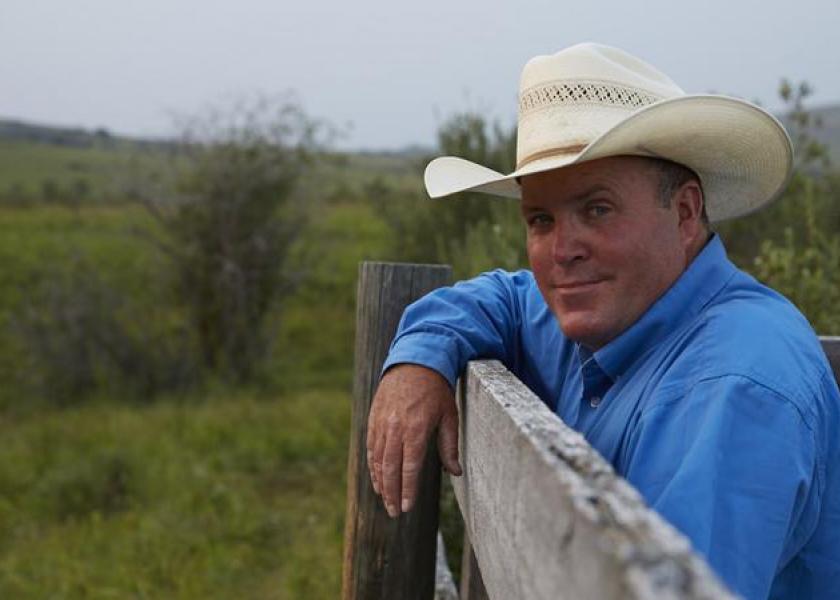Rancher Is McDonald’s First 'Flagship Farmer'

Stephen Hughes from Chinook Ranch in Longview, Alberta, was announced this week as McDonald’s Canada first representative for the McDonald’s Flagship Farmer Program. Hughes was selected for his long-term commitment to innovative ranching practices, including year-round, rotational grazing techniques.
McDonald’s Flagship Farmer Program is a global initiative that amplifies the stories of exceptional farmers and ranchers who exemplify best practices in beef production and agriculture, the company said in a release. As a Flagship Farmer, “Hughes will inspire and inform fellow ranchers, share his experiences, showcase the best practices of Canadian beef producers and engage stakeholders on the impact he’s achieved at Chinook Ranch. He will also continue to participate in a variety of community engagement and outreach programs.”
“I am humbled to be selected as the first McDonald’s Flagship Farmer in Canada,” Hughes told Lethbridge News Now. “I am happy to be an example of all the good work that is going on in my industry; and I appreciate and recognize the commitment that McDonald’s has made to Canadian ranchers.”
The Chinook Ranch in Longview, Alberta, spans 5,440 acres and includes 500 Hereford cross Angus cows, 400 yearlings, and 80 heifers.
McDonald’s says its Flagship Farmer Program is part of its “commitment to support, promote and amplify sustainable practices in agriculture. The program enables farmers, ranchers, producers and growers to share knowledge and experience with other farmers around the world, helping to drive positive change across the global agriculture industry while helping protect the viability of their farms.”
A longstanding relationship with Chinook Ranch has “helped establish McDonald’s as a global leader in beef sustainability and represents the organization’s unwavering commitment to Canada’s beef industry,” the company said.
The Chinook Ranch was one of nearly 170 participants in McDonald’s Canadian Verified Sustainable Beef Pilot Project.
“My objective is to be more profitable, whilst working smarter, not harder. By focusing on year-round grazing, I’ve been able to reduce costs, with my work being more enjoyable and logical,” Hughes told Lethbridge News Now. “If animals don’t have easy access to water, all the grazing management in the world is irrelevant. Cutting out so much farming and developing our water system has allowed us to really improve our grazing practices.”
Such changes allowed for the reduction in hay production from 3,000 bales annually to about 400-500. That reduced machinery, fuel and labor costs by $100,000 and reduced winter feeding costs to 20 cents per cow per day.
McDonald’s Canada says it has used 100% Canadian beef since 2003, and says it will “continue to champion the responsible practices the Canadian beef industry is known for, which help ensure the humane treatment of animals, and positive outcomes for farmers, ranchers and the planet.”
McDonald’s Flagship Farmer Program is focused on identifying Flagship Farmer beef producers in each of the top 10 countries from which McDonald’s sources its beef. In addition to Canada, those countries include: the United States, Australia, Brazil, France, New Zealand, Germany, Ireland, Poland and United Kingdom.
Related stories:







